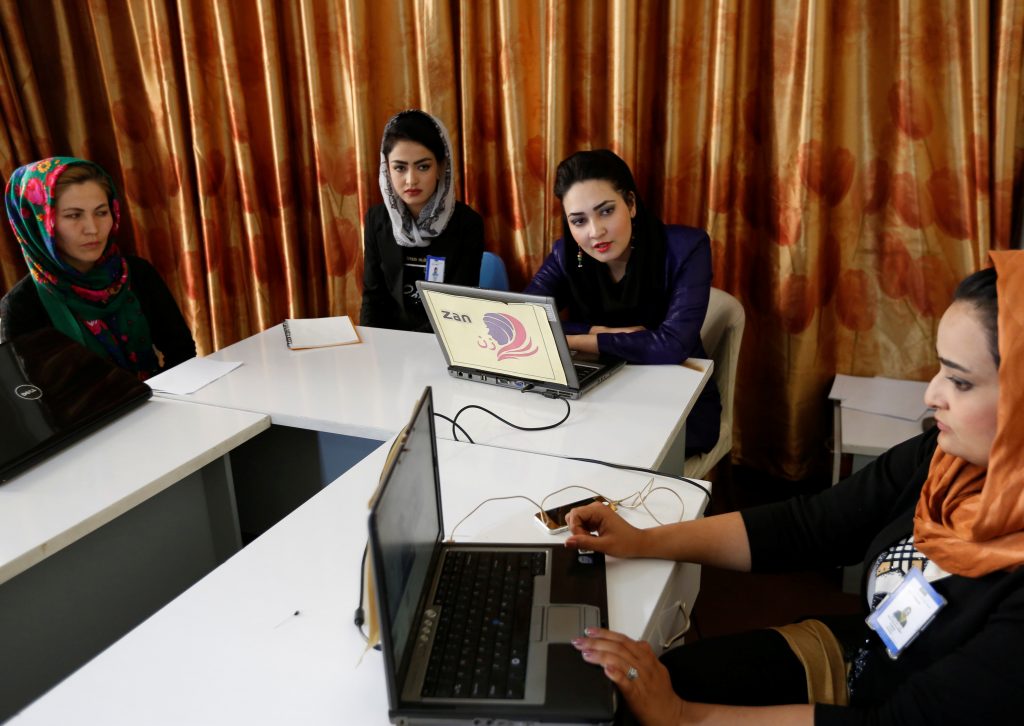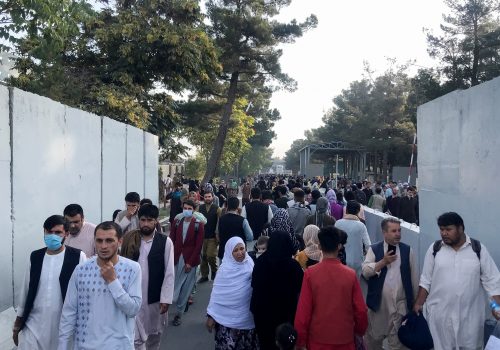The Taliban takeover offers no respite to vulnerable Afghan communities, especially considering the group’s dubious credibility to uphold recent public statements claiming that they’ve changed. Journalists, news reporters, and other contributors to the country’s once-vibrant media landscape—a highly visible achievement of the past twenty years—must now brace for potential Taliban retribution, with minimal help from the international community and no idea of what’s to come. In particular, women journalists are in grave peril, with thousands destroying their identities and going into hiding, plagued with the uncertainty of what Taliban rule means for their careers, livelihoods, rights, and safety.
In this interview, the Atlantic Council’s South Asia Center and Radio Free Europe/Radio Liberty (RFE/RL) partnered for a discussion on the prospects for Afghanistan’s media sector under renewed Taliban rule. Jamie Fly, president of RFE/RL, as well as moderator Irfan Nooruddin, director of the South Asia Center, led the conversation.

The South Asia Center is the hub for the Atlantic Council’s analysis of the political, social, geographical, and cultural diversity of the region. At the intersection of South Asia and its geopolitics, SAC cultivates dialogue to shape policy and forge ties between the region and the global community.
Related content
Image: Afghan staff of Zan TV station (women's TV) discuss in their newsroom in Kabul, Afghanistan May 8, 2017. Picture taken May 8, 2017. REUTERS/Mohammad Ismail

